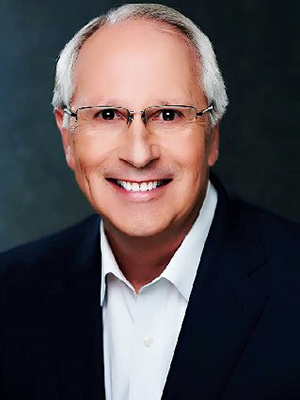The use of the word wealth automatically creates a mindset that is as different for each of us as is our appearance. For most of us, wealth is defined as assets minus liabilities — that is, net worth. As an advisor, we try to communicate that wealth is more than money, but for the most part, the public usually sees wealth as financial assets.
Having an abundance of wealth is often referred to as being rich, but in my opinion, these definitions do not define what I have experienced with clients and associates who are wealthy or rich. For the sake of this article, I will focus on the meaning of wealth in reference to money and assets, but I wanted to preface that this is not my personal definition of wealth.
For those with the desire or goal to achieve wealth, you should first define what that means to you in specific terms, and then identify the resources to make it happen. I can assure you that your idea of wealth today will be very different in 15 or 20 years. How much of your time, energy, and resources are you willing to dedicate to achieve your objectives? How does this impact your relationship with your family and with those involved with your work? Have your strategy and planning included these relationships?
Too many times I have seen an individual’s financials goals achieved after years of business success, only to result in a substantial financial loss overnight due to a failed relationship with the spouse or business partner. It takes so much more than achievement in one area of planning to accomplish the desired results.
For months now I have been writing about the importance of developing a strategy for the time ahead when taxes are expected to increase. If you have listened to the news at all, that time appears to be coming sooner rather than later. The impact of current legislation will likely have a positive impact on short-term investment returns in the stock market, but there will be a serious price to pay in the future. Financial decisions are very different when you are spending other people’s money vs. your own, and that sums up the actions in Washington. Tax increases will wipe away significant amounts of net income from both earnings and retirement accounts.
I am referring above to income and capital gains tax. It is also likely that the exemptions currently in place before estate taxes are triggered will be reduced. Discussions about lowering the exemptions have already begun; the result will be that more people will pay estate taxes, and they will have less to transfer to their heirs. An additional concern is the elimination of the step-up in cost basis, which would trigger substantial capital gains taxes to heirs.
Wealth can be a wonderful asset. It can allow us to enjoy many of the pleasures that life affords and participate in these with family and friends. It can also be used to support causes we believe in and make a positive difference in our community and the lives of others. Wealth reveals the very character of the person who holds it. We have all witnessed the joy of seeing wealth used in the right way, just as we have witnessed it used for greed, self-serving interest, control, and power.
The challenges of wealth are so much broader than finances. One of the most fulfilling aspects of my work is helping my clients address risk protection as well as investment and legacy planning; proper planning gives them the ability to enjoy life with less stress, thereby benefitting from the wealth of life.
True wealth is so much more than financial matters. Life should have meaning and purpose, not only for yourself, but for the world that you touch.
























